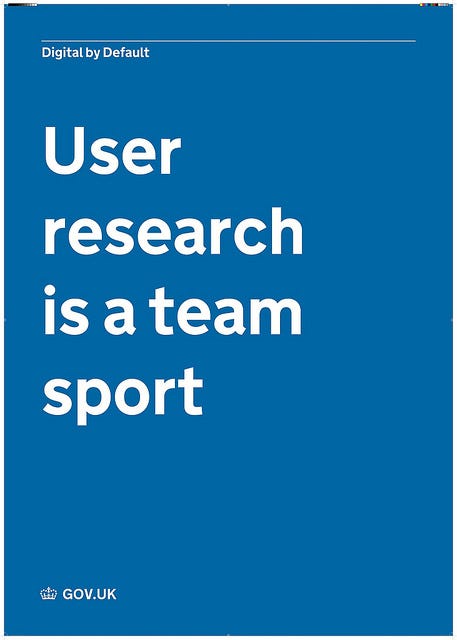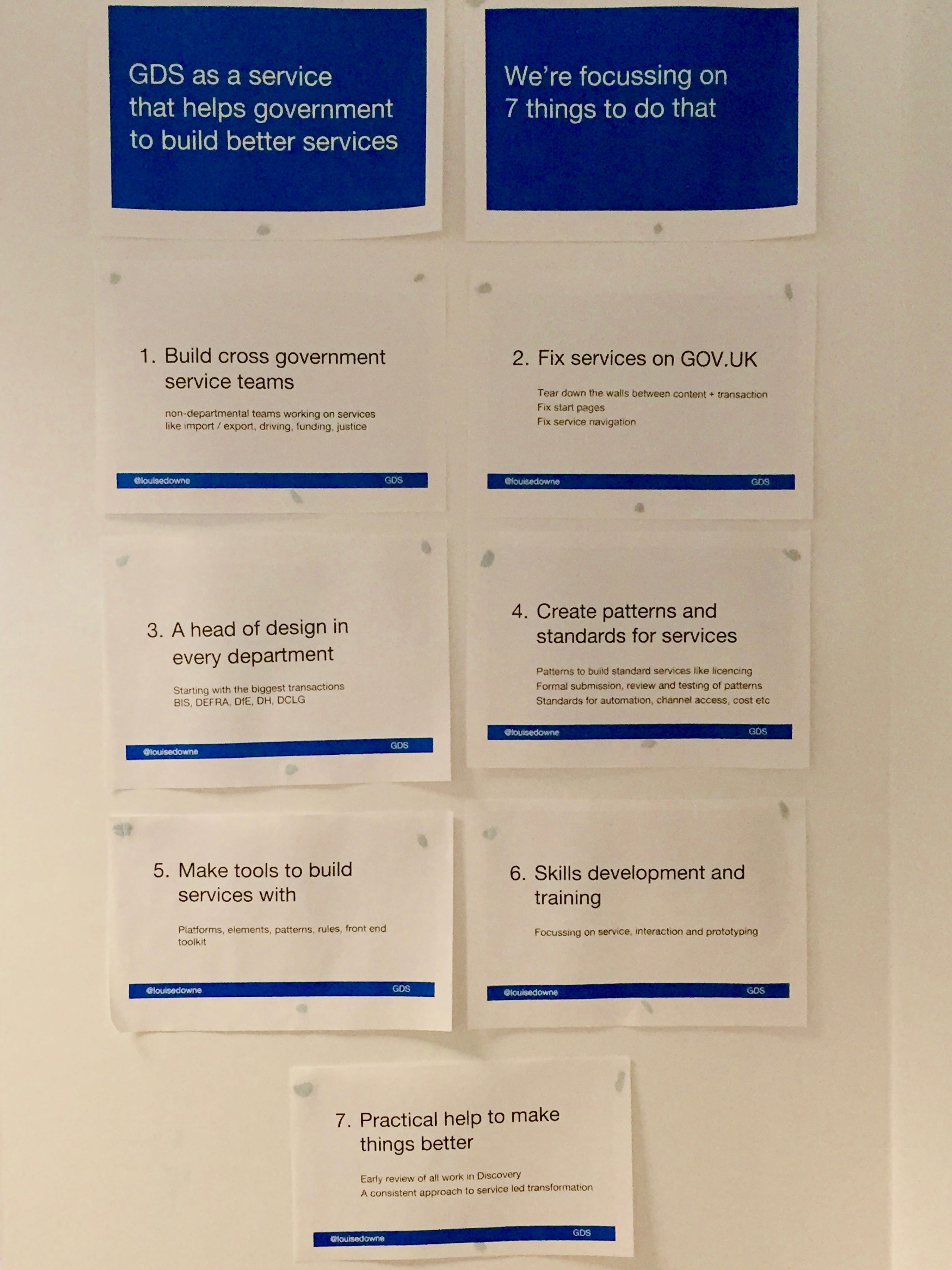Toward the end of Mozilla’s All-Hands Meeting in London last week, about a dozen members of the Firefox UX team paid a visit to the main office of the Government Digital Service (GDS). GDS is a department within the UK government whose mission is to “help government make digital services and information simpler, clearer and faster” and to “put users’ needs before the needs of government.” Over the course of an afternoon, we got to sit in on a GDS design team meeting, tour their office, and share some of Mozilla’s recent user research.
What we realized soon after arriving at GDS is that we have a lot in common with them. They, too, are a mission-driven organization. Moreover, they model many of the values and practices at the center of our work at Mozilla. There is much that we can learn from GDS, including:
Define “users” broadly and inclusively
GDS design team members work on a range of high-profile projects, like GOV.UK Verify. Verify is a way for any Internet user accessing a UK government service to confirm their identity online and therefore protect against fraud in transactions with government. GDS design team members are also working on numerous projects where government employees from other departments are the primary end-users. For instance, GDS is helping government employees access wi-fi and update the hardware they need to do their jobs more easily.
The variety of GDS projects is a helpful reminder that, in order to fulfill our mission, Mozilla must continue to think broadly and inclusively about who our users are. It can be tempting to think of our users as mostly people new to Firefox or as superusers of our products, but the group on which the future of Mozilla depends is much more diverse than that.
Create an organization of user research advocates

“User research is a team sport”
At GDS, user research is highly collaborative. Researchers are embedded in project teams. GDS non-researchers are active participants in research projects. It was telling that, as we listened to a room full of GDS design team members give quick updates on their work, nearly everyone mentioned some kind of recent user research activity, including journey mapping, lab testing, and research planning. To promote user research, GDS maintains numerous resources, which can be accessed from their User Research blog, including monthly research training days to prepare “research buddies.”
In many organizations, user research (if it exists at all) is collaborative far more in spirit than in practice. GDS’ active dedication to involving designers and non-designers alike in their research is a valuable reminder to continue to explore ways in which we can scale our user research efforts and create an organization of research advocates.
Share your work
Both GDS and Mozilla value openness and transparency in what we do, as the nature of our visit to the GDS office made clear. We also learned that many GDS team members dedicate time to sharing their work, in-person, outside of government, and even outside of the UK. For example, we heard about individuals presenting their work at conferences and other meetups. It was striking to hear these activities described with the same attention and priority as other work, rather than as a footnote or obligation tacked onto one’s busy week.
At Mozilla, because of the volume of projects underway, it can be easy to de-prioritize sharing research practices and findings beyond our community. Our visit to GDS was an inspiring reminder that dissemination is an important means of reflecting and improving upon our work.
In summary

GDS’ 7 tenets for building better services
Though on the surface GDS and Mozilla are working in different contexts, our two organizations share many values. We are both committed to the overarching goal of digital transformation. We believe in challenging the status quo to make vital resources–government and the internet–more accessible and useful to people. At GDS, we found a peer group as well as an exemplary team who practice everyday putting users first.
Thank you to Alex Torrance of GDS for hosting us.
Originally published on medium.com